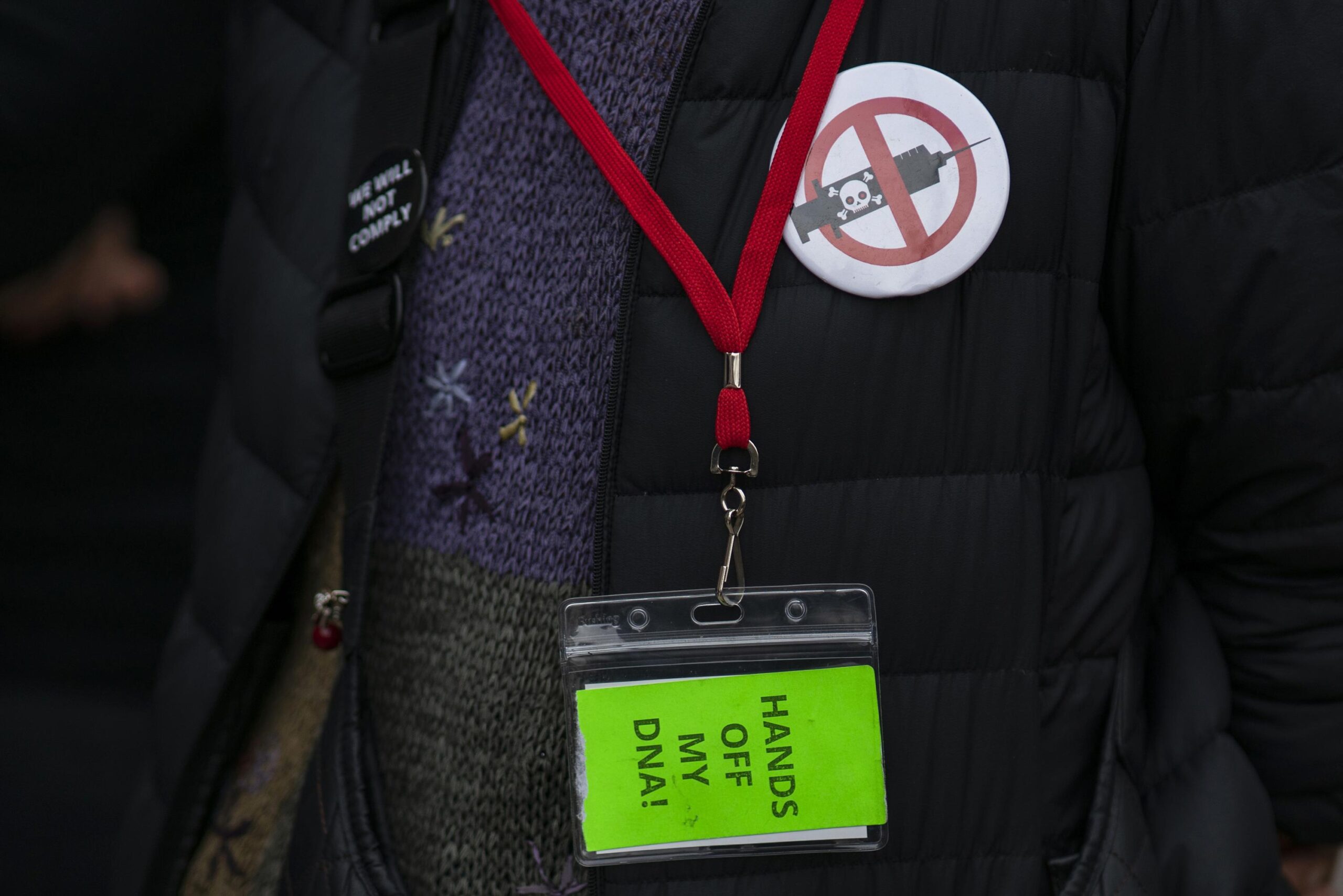BY KATHERINE FRANKE
Published: November 15, 2021
-The Hill
How should these requests be judged? What standard should be used to sort legitimate from cynical appeals to religious belief as a reason to be excused from complying with a legitimate public health measure that all employees are asked to undergo to protect our collective health? After all, many public officials have raised concerns about voter fraud and urged strict measures to protect the integrity of our electoral process. At the very least, we should be just as vigilant in protecting against fraudulent claims that undermine the fundamental interests of religious liberty and public health.
For decades, federal, state and local governments have evaluated these kinds of requests in a wide range of contexts. The basic obligation to respect the religious liberty rights of public employees is not new. What is new is the massive number of such requests in response to the COVID vaccine mandate, and the way that public health measures that would be considered reasonable in other times have been politicized today. The administration of the smallpox vaccine in 1947 is an instructive counterexample.
Over 6 million New Yorkers were vaccinated against smallpox in less than a month. Indeed, during the 1918 flu epidemic, there was almost no faith-based resistance to compliance with society-wide public health measures, and most houses of worship closed voluntarily when state/local governments issued limits on religious gatherings that generated very little faith-based opposition.
The current charged climate has generated a tidal wave of demands for exemption from the vaccine mandate on religious grounds. Here is how employers should evaluate those demands, drawing from a long history of respect for religious liberty rights.
The first question is whether the person’s objections are religious in nature. The law does not protect moral or political objections to vaccination — but rather, the employee must show that their objection is grounded in belief that is religious in nature.
Yet what counts as religious? Courts have answered this question with, for example, beliefs that implicate “‘deep and imponderable matters’ … includ[ing] existential matters, such as humankind’s sense of being; teleological matters, such as humankind’s purpose in life; and cosmological matters, such as humankind’s place in the universe.”
Importantly, the law does not require that the person’s beliefs derive from official clerical doctrine in order for them to count as religious. The fact that leaders of most major religious denominations have instructed their believers to get vaccinated — the Pope, for instance, urged Catholics to get vaccinated as an “act of love” — does not end the matter. The law protects unorthodox or even heretical beliefs, so long as they are religious in nature to the person seeking the exemption.
Second, the law will only protect those religious beliefs that are “sincerely held”. That means that you can’t just dress up a political or moral objection in religious garb in order to avoid a requirement that applies to everyone else. As one court put it, without examining the sincerity of professed religious beliefs, religious liberty “could easily become the first refuge of scoundrels if defendants could justify illegal conduct simply by crying ‘religion.’”
But how do you prove sincerity? The military has been tasked with this inquiry for decades in deciding who is entitled to conscientious objector status and can avoid military service, as have prison officials when faced with the religious liberty claims of incarcerated people. The bar is not so high that one has to show that they have been perfect in the observance of their religious beliefs, but employers are permitted to inquire about whether the person has altered their behavior depending on the context, has been relatively consistent in applying their religious beliefs, or the timing of their faith-based objection may be otherwise suspicious or untimely.
For instance, some Evangelical Christian objectors to the COVID vaccine have pointed to the fact that stem cells derived from fetal tissue may have been used in the research and development of the COVID vaccine. It would be legally permissible to ask whether the person asserting the exemption also abstains from using Tylenol, Pepto Bismol, Tums, Lipitor, Motrin, Maalox, Ex-Lax, Benadryl, Sudafed, Preparation H, Claritin, Prilosec, or Zoloft, all of which were developed in the same manner implicating fetal cells as the COVID vaccine.
Finally, the person requesting a religious exemption must show that their sincerely held religious beliefs are “substantially burdened” by the employer’s requirement that they are vaccinated. This issue is not merely up to the person asserting the exemption to say “this is incredibly important or offensive to my religious beliefs.” Not just any burden entitles the person to an exemption. The question of whether the burden is substantial is whether the person is being forced to choose between the tenets of their religion and a government job, or being coerced to act contrary to religious belief by threat of civil or criminal penalty.
The law sets a pretty high bar, but a bar that is designed to respect truly religious beliefs in determining whether a person is entitled to a faith-based exemption from a mandate that everyone else must comply with. This high bar is good for religion because the special status that religious beliefs enjoy under our Constitution would be undermined if any political belief could count as religious. And this high bar is good for the rule of law, especially during a pandemic. Democratic values would be seriously threatened if every time a law is passed that you didn’t agree with, you were able to claim that the law doesn’t apply to you.
As the Chief Justice of the Supreme Court wrote in 1878 “to permit this would be to make the professed doctrines of religious belief superior to the law of the land, and in effect to permit every citizen to become a law unto himself. Government could exist only in name under such circumstances.”




